DR ALAN UNTERMAN , born 1942 in Watford, is married to Nechama, a Manchester solicitor specializing in crime, with three children. He attended Talmudic college in England and Israel, and the Universities of Birmingham, Oxford, and Delhi, India, where he received his Ph.D. Dr Unterman has worked as a Lecturer in Comparative Religion in Melbourne, Tel Aviv and Manchester, and as Minister of the Yeshurun Synagogue in Cheshire. Among his publications are The Wisdom of the Jewish Mystics (1976), Jews, Their Religious Beliefs and Practices (1981) and Dictionary of Jewish Lore and Legend (1991).
The Kabbalistic Tradition
An Anthology of Jewish Mysticism
Edited and translated with an Introduction and
Notes by ALAN UNTERMAN
PENGUIN BOOKS
PENGUIN CLASSICS
Published by the Penguin Group
Penguin Books Ltd, 80 Strand, London WC2R 0RL , England
Penguin Group (USA) Inc., 375 Hudson Street, New York, New York 10014, USA
Penguin Group (Canada), 90 Eglinton Avenue East, Suite 700, Toronto, Ontario, Canada M4P 2Y3
(a division of Pearson Penguin Canada Inc.)
Penguin Ireland, 25 St Stephens Green, Dublin 2, Ireland
(a division of Penguin Books Ltd)
Penguin Group (Australia), 250 Camberwell Road, Camberwell, Victoria 3124, Australia
(a division of Pearson Australia Group Pty Ltd)
Penguin Books India Pvt Ltd, 11 Community Centre, Panchsheel Park, New Delhi 110 017, India
Penguin Group (NZ), 67 Apollo Drive, Rosedale, North Shore 0632, New Zealand
(a division of Pearson New Zealand Ltd)
Penguin Books (South Africa) (Pty) Ltd, 24 Sturdee Avenue, Rosebank, Johannesburg 2196, South Africa
Penguin Books Ltd, Registered Offices: 80 Strand, London WC2R 0RL , England
www.penguin.com
First published in Penguin Classics 2008
1
Translation and editorial material Copyright Alan Unterman, 2008
All rights reserved
Except in the United States of America, this book is sold subject
to the condition that it shall not, by way of trade or otherwise, be lent,
re-sold, hired out, or otherwise circulated without the publishers
prior consent in any form of binding or cover other than that in
which it is published and without a similar condition including this
condition being imposed on the subsequent purchaser
978-0-14-190672-0
Contents
4 HOLY SCRIPTURES:
BIBLE CHARACTERS AND THEMES
5 NATURAL AND SUPERNATURAL
WORLDS
Preface
There is a Mishnaic teaching, ascribed to a second-century Palestinian sage Simeon ben Zoma: Who is truly wise? He who continues to learn from every person ( Avot 4:1). This is somewhat problematic since, as Rabbi Chaim Vital points out, what we have here is surely the definition of an able student, not of a truly wise person. Vital resolves this by explaining that all Israelites have a letter of the Bible which is their personal dimension of divine revelation. In order to understand what God is saying in Holy Scripture a complete picture is needed, and this can be done by assimilating other peoples insights and combining them with ones own.
The implication of all this is that wisdom is an ongoing process not a state, a journey rather than a destination. We can perhaps extend Vitals explanation to include everyone in this teaching, in line with the universal scope of the original Mishnaic statement about learning from every person.
I am grateful for what I have gained from my own spiritual guides and academic teachers and from my colleagues, clerical and lay, Jews and Gentiles. I am particularly grateful to Lindeth Vasey, my Penguin Books copy-editor, who by raising objections and queries helped me to clarify things I thought I knew.
More than from my teachers and from my colleagues I have learnt from those I sought to teach. This is true of my students particularly at the University of Manchester and of my congregants, the men, women and children of the Yeshurun Synagogue, Gatley. For the past twenty-six years the Gatley Yeshurunites, through their response and criticism, and through sharing their religious insights with me, taught me while I sought to teach them. It is to the Yeshurun community that I dedicate this work.
Introduction
THE NATURE OF JEWISH MYSTICISM
Kabbalah, also known as the Secret Wisdom, is a term loosely used by Jews to refer to the various traditions of Jewish mysticism down the ages. It is more specifically associated with the mysticism of the Zohar in medieval Spain. Kabbalah may be spelt Qabbalah or Cabbalah - a Hebrew word which means that which has been received; it has the implication of someone receiving their mystical teaching directly from an enlightened master. Most Jewish mystics seem to have had such masters from the living and the dead. A popular teacher of Kabbalah of the latter kind was the prophet Elijah, who was taken up alive into heaven (2 Kings 2:11) and serves as Gods messenger to mankind in each age. It is believed that secret teachings are brought to earth by Elijah, who appears in various guises to human beings.
Were Kabbalah merely the passing on of mystical teachings from master to disciple one would expect little change, over time, in the nature of Kabbalistic ideas. The opposite is actually the case, and alongside evolutionary developments in its ideas there have been revolutions in Kabbalistic thought. These were supported by the claim that they originated either with heavenly masters, or with hidden earthly ones, or with newly discovered ancient texts, unknown to previous Kabbalists. One influential modern Kabbalist, Rabbi Yehudah Leb Halevi Ashlag (1886-1955) says about his own master:
My holy master was well known throughout the city as a trustworthy merchant. Nobody, however, has recognized his achievements in the wisdom of the Kabbalah until this day, nor was I given permission to reveal his name. (From a letter quoted by his son in a preface to Ashlags Sulam commentary on the Zohar)
Because these claims could not easily be authenticated considerable freedom was provided to Jewish mystics to develop new insights. No doubt they genuinely believed that their original innovations were really old-new teachings, and the true meaning of what was previously taught.
Change and novelty are accommodated by Kabbalists on the assumption that new breakthroughs in Kabbalah depend on the receptivity of those able to accept such mystical teachings. The teachings are ancient but they can only be received when people are ready. Rabbi Ashlag in the introduction to the Sulam , his Lurianic commentary on the Zohar, explains why the Zohar was unknown to earlier generations before the late thirteenth century, why the Lurianic exposition of the Zohar was unknown before the sixteenth century and why a correct interpretation of Lurianic teaching was unknown before the twentieth century. His answer is couched in terms of the need for the completion of the vessels that would convey the divine light and the subsequent revelation of this light to generations that would be able to absorb it.
Followers of Kabbalah view the teachings of the mystical path as the true inner meaning of the Jewish religion itself, handed down as an esoteric tradition. Its authority comes not merely from the charisma of a particular Kabbalistic mystic, but also from the great sages of the past, whose ideals and insights inspired him.


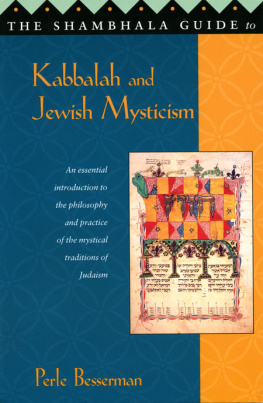
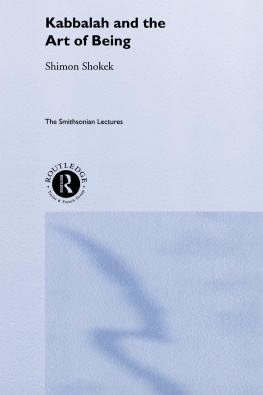
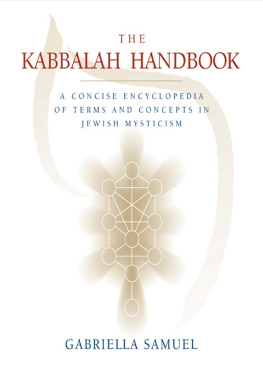
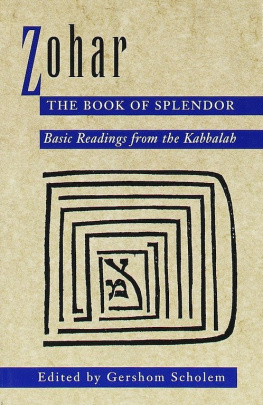

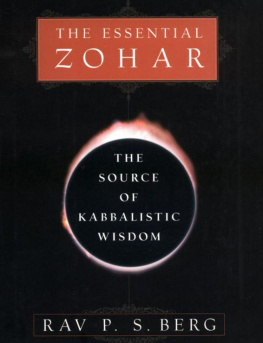
 CLASSICS
CLASSICS